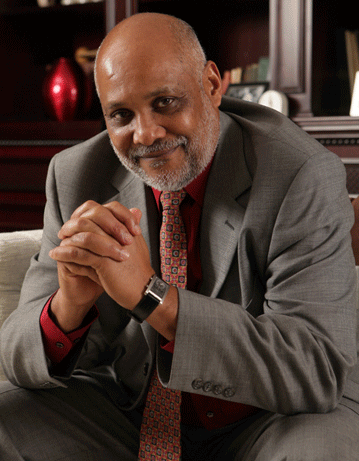
 Issa
Baluch may know as much about logistics as anybody you will ever meet. Issa
Baluch may know as much about logistics as anybody you will ever meet.
He possesses the chops and know-how gained over a career that spans 37-plus
years.
Best known as the founder of Dubai-based Swift
Freight, which was a medium sized multi-national that he eventually sold
to Barloworld, one of Issa’s lasting contributions is that he is
the guy that launched sea-air in Dubai.
These days Issa is at Harvard in the USA, where
he is undoubtedly continuing to think big thoughts about logistics.
Here with Harvard in the rear view mirror for
a few months, Issa shares some ideas with us about what air cargo should
view as top priority in 2012 and beyond.
“The industry should seek stronger
ties with regulators to ensure it continues to participate in the passage
of air cargo regulations with a voice. This concern might be taking a
back seat to what is viewed as more pressing issues, such as security
and the downturn in the global economy, but it should not be neglected
nor given a low priority.
“I tell people in the air cargo business
to cling to their customers, now more than ever. The future of their business
depends heavily on these customers. To neglect them, whether intentionally
or not, will lead to the downfall of their business. My advice to the
air cargo industry is to listen well to what their customers are saying.”
While Mr. Baluch has high expectations for
cargo moving forward, he is also grounded in the reality that “the
economy is sick and the cure will be slow and painful.
“The old belief still prevails in
me. I believe the United States is the engine of the global economy. If
it suffocates, everyone else suffers. So focus on what happens in the
USA, but keep an eye out for emerging markets. It's also important to
keep track of troubled regions of the world, as well as those still recovering
from natural disasters.
As for a ‘recipe for success’,
the rules can be quite simple when broken down logically. “Clearly
those who invested wisely in new and modern aircraft, warehouses, trucks
and other equipment, and those who are well entrenched in their niche
markets—these are the winners of the day. Air cargo can be an asset-intensive
industry and renewing such assets is important for survival.”
But there is still much left to be done
on an industry-wide scale, such as creating “A global standard for
the industry,” said Mr. Baluch.
“We are still far away from standardization.
Air cargo security, for example, remains elusive in some countries or
regions. What needs to happen is for nations that have achieved some form
of standardization to band together and guide those who are lagging behind.
“When I was a practitioner in the
industry, I used to act. Now at Harvard, I plan a lot. My problem is I
am unable to do both at the same time.
“One out of 10 young people know nothing
about the industry. This is both alarming and amazing. It boggles the
mind to discover that we have done very little to enhance the image of
this industry in the minds of the new generation. My presence at Harvard
and MIT in the last 18 months has revealed this tragic scenario. Clearly,
a lot needs to be done,” said Mr. Baluch.
Issa believes that the role of freight forwarders
has only become more important over the years. “In some countries,
freight forwarding has become one of the most important industries fueling
economies and driving destiny. This does not mean, however, that its importance
differs from others.”
He also believes there have been many misconceptions
that have grown out of the effects of terrorism on the industry, something
which we all must be aware of when trying to move forward.
“There are a lot of misconceptions
about air cargo. The most relevant, however, is that packages will not
be opened by anyone but the sender and the recipient. This is relevant
because terrorism has changed the way everyone does business and not just
the freight forwarding industry. We again go back to the question of cargo
security and what we can do about it,” said Mr. Baluch.
Geoffrey/Flossie
|



